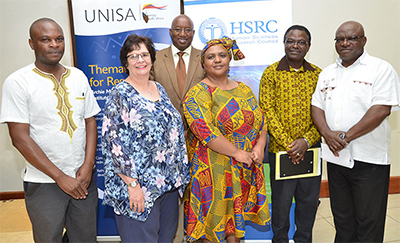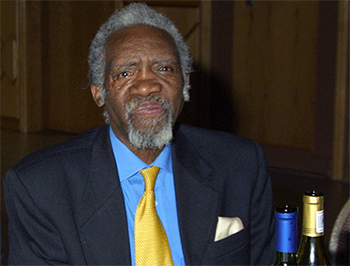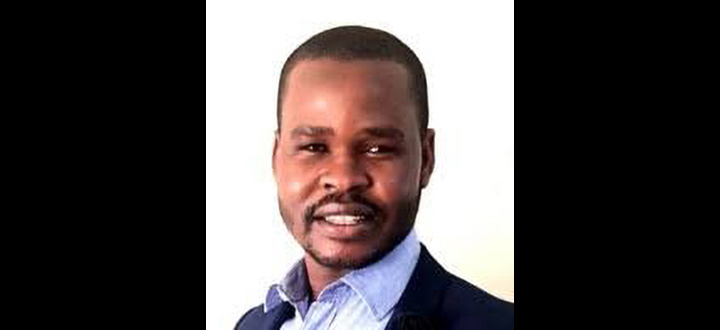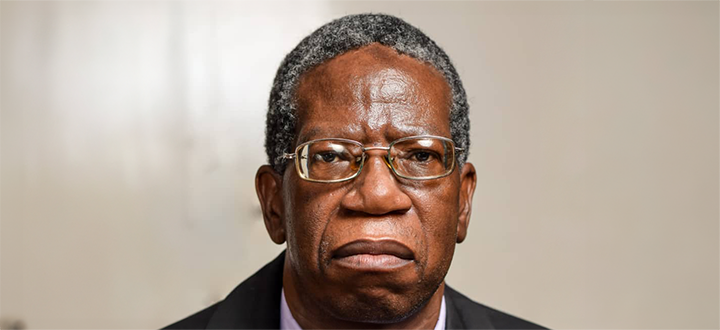Leading change
Do not abandon your African identity

Dr Busani Mpofu, Prof Michelle Havenga (Executive Dean: College of Graduate Studies), Thoko Didiza (MP), Sandile Swana, Prof Francis Nyamnjoh, and Dr Claudius Chikozho paid tribute to a great Pan-Africanist at the 2017 Archie Mafeje Annual Memorial Lecture.
Unisa’s Archie Mafeje Research Institute (AMRI), in collaboration with the African Institute of South Africa in the Human Sciences Research Council, hosted the Archie Mafeje memorial lecture at the university on 28 March 2017, in remembrance of a man known in academic circles as a frontline partisan in the struggle for social justice, and a gentleman of great humanitarian principle.
The memorial lecture was attended by his family, friends, and academics who continue to follow and embrace the footstep of Mafeje.
Mafeje was hailed as the finest Pan Africanist who spent the best part of his life and scholarship contesting against the racialised epistemological underpinnings of a system of social knowledge production into which Africans have been co-opted and schooled as passive consumers without their voice, even on matters pertaining to their own realities and existence.
Prof Francis B Nyamnjoh from the University of Cape Town, delivered the lecture, entitled Drinking from the cosmic gourd: How Amos Tutuolan can change our minds. He described Mafeje as a gentleman of great humanitarian principles who was committed to combating the distorted images produced and reproduced about Africa from the outside.
“As an academic sojourner conscious of the history of Africa over the last six centuries, he rallied his colleagues to resist the intellectual servitude on which all forms of foreign domination thrive. He was intransigent in his call for the liberation of our collective imaginations as the foundation stone for continental liberation. In all of this, he also distinguished himself by his insistence on scientific rigour and originality. It was his trade mark to be uncompromisingly severe with fellow scientists who were mediocre in their analyses. The power of his pen and the passion of his interventions always went hand-in-hand with a uniquely polemical style hardly meant for those who were not sure-footed in their scholarship.”
He said Mafeje used his deep intellectual and political commitment to the total emancipation of Africa as a symbol of pan-African ideals.

Archie Mafeje was a member of the Society of Young Africa, political activist, Director of the Multidisciplinary Research Centre at the University of Namibia, author, member of CODESRIA, and Professor of Anthropology and Sociology of Development. He was known as an ‘intellectual pathfinder’. He contributed a great deal to the people of Africa’s knowledge and self-worth, especially since they had to fight against injustices and marginalisation. Not only was Mafeje an influential academic, but he was a person of brilliance and intellect, and a man of insight.
“Through his sustained critique of African anthropology as a handmaiden of colonialism and call for social history to replace it as a discipline, surfaces Archie Mafeje’s total discomfort with the epistemology of alterity and exogenously generated and contextually irrelevant knowledge produced with ambitions of dominance, especially when such knowledge is passively internalised and reproduced by the very people whose ontology and experiences have been carefully scripted out of this knowledge by misrepresentations informed by hierarchies of humanity structured, inter alia, on race, place, class, gender, and age.”
Nyamnjoh called upon academics to emulate Mafeje by refuting the common misconception that there is only one type of scholarship and one type of experience worth writing about at the expense of local relevance and in search of international recognition.
“Some African intellectuals feel pressure to abandon their African identities and recycle and reiterate dominant colonialist scopes of knowledge,” he said to cheerful applause.
He added that this phenomenon is worth investigating in light of the wave of protests at universities where students demand the “fall” of Eurocentric education standards in favour of more Afrocentric curriculums grounded in African traditions.
Thoko Didiza, who was instrumental in setting up AMRI, said Mafeje was a towering intellectual giant whose immense contribution to the liberation struggle was beyond question. She said he was not only an academic but a debater of note, whose quest for knowledge never ceased to amaze the people.
She said the investment into AMRI gives reality to Unisa’s vision of being the African university shaping futures in the service of humanity. She added that Unisa’s recognition of Mafeje’s contribution both in the struggle for liberation and knowledge production was a major step towards the decolonisation of the knowledge space in South Africa.
Sandile Swana, a family representative, said Majeje was mistreated by the racist apartheid government and predominantly white universities, which refused to recognise his contribution. He lamented that the country is at crossroads and said the lack of morally grounded leaders was posing a threat to post-apartheid democratic gains.
He said the campaign for #RhodesMustFall and decolonised education, which saw students protesting across universities, would have pleased Mafeje, because it challenged the exclusionary norms entrenched in universities as a result of white supremacy at the expense of African values. He said the family was grateful to share Mafeje’s legacy with the country.
*By Percy Mthombeni
Publish date: 2017-03-30 00:00:00.0


 Unisa honours Dr OK Matsepe's enduring legacy
Unisa honours Dr OK Matsepe's enduring legacy
 Great strides towards concretising Unisa-PMC partnership
Great strides towards concretising Unisa-PMC partnership
 Mental health among men in the workplace needs more attention
Mental health among men in the workplace needs more attention
 "I owe everything to Unisa and my late supervisor's priceless mentoring"
"I owe everything to Unisa and my late supervisor's priceless mentoring"
 Majikijela - a queer scholar raising homosexuality awareness through his work
Majikijela - a queer scholar raising homosexuality awareness through his work